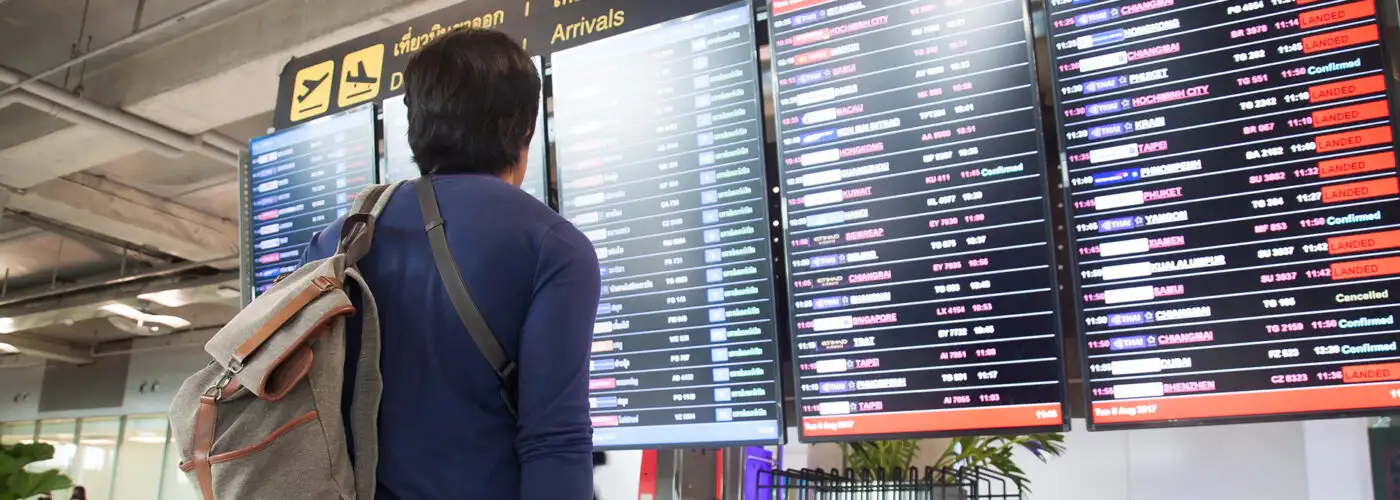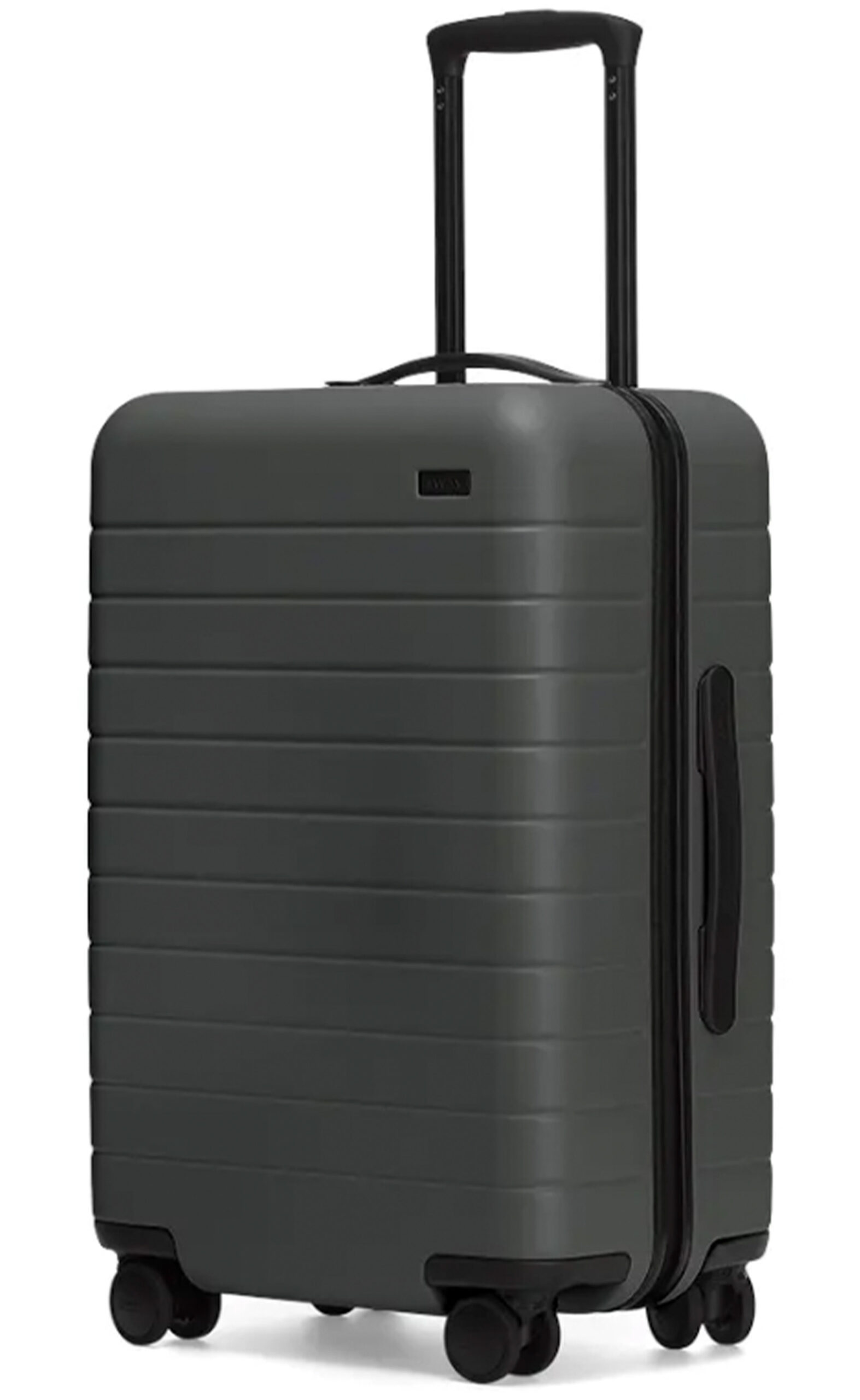As experts and media spokespeople, the editors at SmarterTravel get asked a lot of travel questions. How early should you book? Which booking sites have the cheapest fares? What’s the best way to avoid bag fees?
The good news is that we have answers. From pinpointing the best day of the week for booking airfare to selecting the best destination for your next trip, here are solutions to some of your most common travel questions.
How Far in Advance Should I Book?

Truth be told, airfare prices—which fluctuate constantly—are impossible to predict. However, there are a few strategies that will guide you to a good deal and minimize your risk of overpaying.
For domestic travel, you’ll typically find the best fares one to two months before your trip. For international itineraries, you’ll often want to start searching for fares a bit further in advance, especially if your dates are firm or you’re traveling at a busy time of year. Add an extra month or two for peak travel times like holidays or major events. Some destinations, such as Disney World during spring break or popular beach spots in August, require even more advance planning, so do your homework.
To help you figure out when to jump on a fare, set up airfare alerts through sites like Airfarewatchdog (SmarterTravel’s sister site) or smartphone apps like Hopper (iOS | Android). You can put in your targeted trip dates and itinerary, and you’ll be notified when the fare drops.
How Can I Find the Best Travel Deal?
We’d love to point you definitively to a single booking site that always has the lowest possible airfares and hotel rates, but, unfortunately, that site doesn’t exist—and shopping around is always required. It’s best to check multiple types of sites before you book, including the provider’s own website as well as online travel agencies (think Expedia and Orbitz) and metasearch sites (like Kayak and SmarterTravel’s parent company, TripAdvisor).
To help you find the best sites to check, see the following lists:
- The 12 Best Flight Search Sites for Booking Cheap Airfare
- The 10 Best Hotel Booking Sites
- The 14 Best Car Rental Booking Sites
- The 10 Best Sites to Book a Cruise
- The 8 Best Travel Package Sites for Booking a Cheap Vacation
- The 9 Best Vacation Rental Sites for Travelers
One tip to keep in mind: The more flexible you are, the better the deals will be. Moving your trip a few months from a destination’s peak season to its shoulder season, for example, often means lower prices and smaller crowds. Flying out on a Tuesday or Wednesday rather than a Friday or Sunday can also save you money. For more information, see The Best and Worst Days to Fly.
How Can I Avoid Fees?
Yes, travel fees are pervasive and have wormed their way into every facet of travel, including flights, hotels, and rental cars. The good news is that many can be avoided. When it comes to flying, look for airlines that don’t charge fees for common services like baggage: For example, Southwest allows two checked bags for free, and some airlines will waive bag fees for frequent flyers or travelers who carry their branded credit cards. For more ideas, see 7 Smart Ways to Bypass Baggage Fees.
Many hotel fees can be avoided if you simply say no to certain services. In other words, don’t touch the minibar or make in-room calls (buy your own snacks and use your cell phone instead). Other charges, such as resort fees, are trickier. It’s best to find out about the charge in advance and book with another hotel, or ask the hotel manager to remove it—he or she might say no, but it never hurts to ask.
When renting a car, read the fine print. Look for easily avoidable fees like early-return and fuel charges. Also, most agents will pressure you into buying a collision damage waiver (CDW), but you might already have collision coverage through your credit card or your own auto insurance policy. Always check in advance.
What Are My Rights When Your Flight Is Delayed or Canceled?
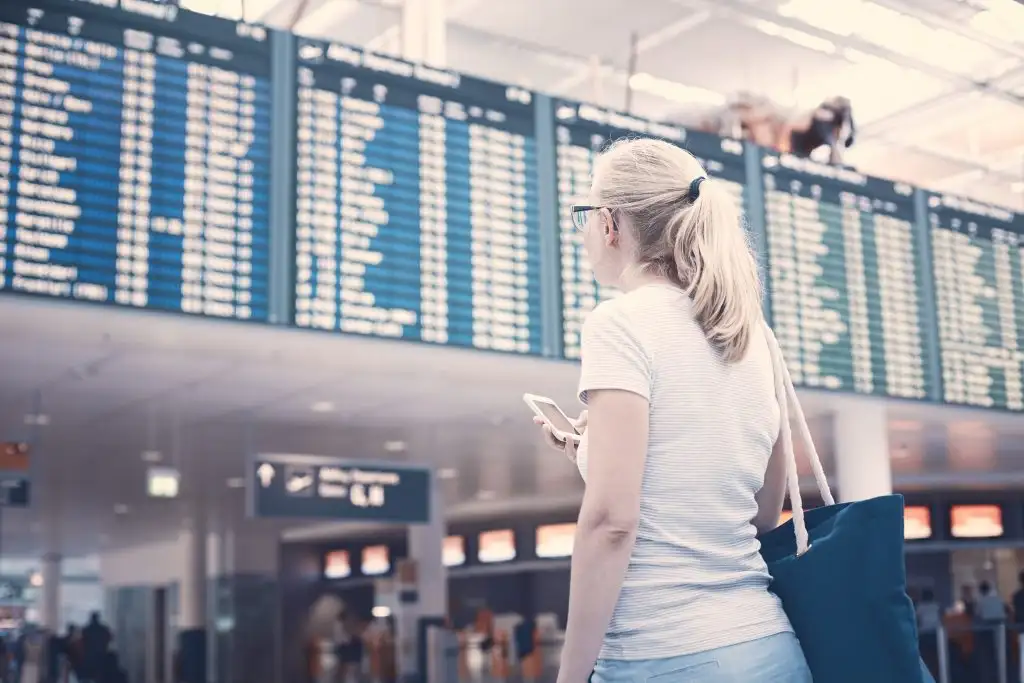
When you find yourself faced with a flight delay or cancellation, know that your rights vary depending on whether the situation is the airline’s fault (such as a mechanical delay) or due to some uncontrollable outside force (like a hurricane or winter storm). Every airline’s policy varies, but most state that for delays or cancellations within the airline’s control, passengers are entitled to be rebooked on the next available flight, possibly transferred to another carrier, or to receive a refund for the unused portion of the trip. Some lines will also provide meal vouchers, hotel stays, and ground transportation at their discretion.
When the situation is beyond the airline’s control, a refund is all that most airlines promise. However, for major storms, airlines have set a precedent for preemptively canceling flights in advance so you’re not stranded at the airport, and they will allow you to rebook within a specific time frame without penalty.
To learn more, see Flight-Cancellation Rights: The Ultimate Guide and Flight Delays: What to Do and How to Prevent Them.
Do I Need Travel Insurance?
To buy or not to buy: That is the question when it comes to travel insurance. It all depends on risk and your tolerance for it. In general, if you’re taking a relatively short trip and haven’t paid a fortune for it, you probably don’t need it. Plus, most airlines—and hotels, for that matter—will give you a refund or allow you to rebook when there’s a widespread storm or incident.
However, if you have put down significant nonrefundable deposits, are traveling at a risky time of year (such as hurricane season), have a potential medical condition, or are traveling to remote places where hospitals are scarce, travel insurance could be a good idea.
If you do opt insurance, make sure you know what’s included in your policy; most are very specific and won’t allow coverage to kick in once a storm is predicted or if you have a preexisting medical condition. You can also buy a policy that will allow you to cancel for any reason, but those usually come with a higher premium.
How Do I Know When a Deal Is Really a Deal?
Sadly, not all travel deals are created equal. And while some are bona fide, others are nothing more than gimmicks, if not downright scams. Your best defense is to take the time to fully research a deal before handing over your credit card number.
First, make sure you’re dealing with a reputable supplier, especially when it comes to tour operators and promoters. If you haven’t heard of the company, check with the Better Business Bureau or United States Tour Operators Association (USTOA) to make sure it is sound. Look for online reviews of the company on sites such as TripAdvisor or TrustPilot. Also, always compare prices across multiple suppliers. A deal might look good at first glance, but you may be able to beat the price elsewhere.
When it comes to hotel packages, price out inclusions like gift baskets or spa services separately to determine whether it’s cheaper to go a la carte. For example, many hotels offer individual room rates that are way cheaper than what you’d pay for the room plus the extras in a package. Remember: You can bring your own Champagne and chocolate-covered strawberries (likely higher-quality ones, too).
Lastly, always read the fine print, with a particular eye on blackout dates and other restrictions. You don’t want to get a deal that you can’t even use.
How Do I Score an Upgrade?
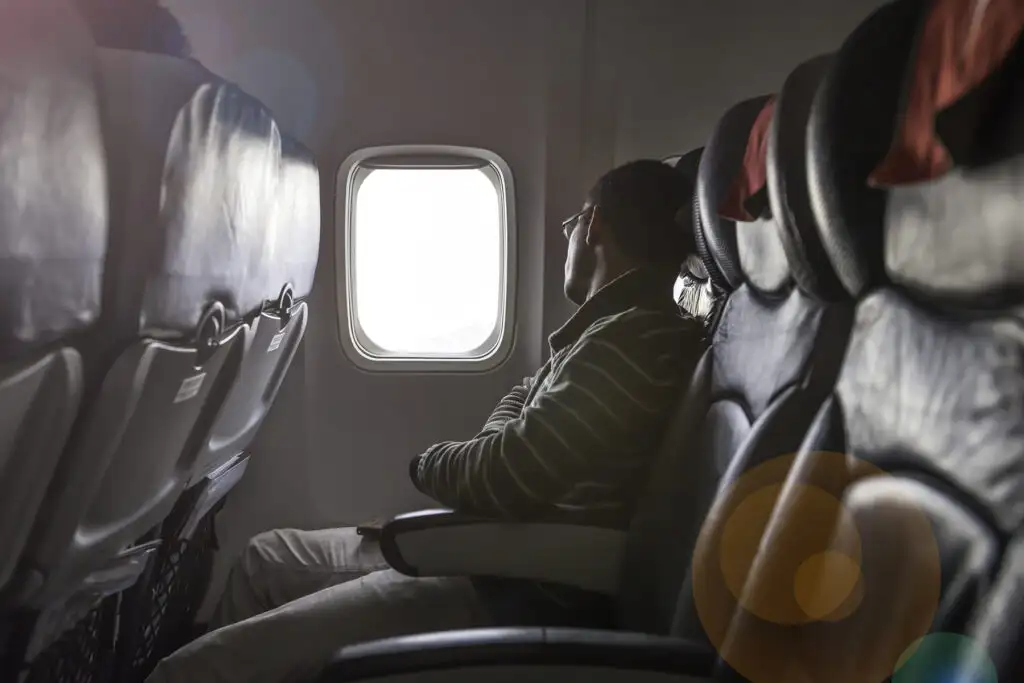
Everyone wants to vault to the front of the airplane cabin or that penthouse suite in the hotel, but most of us feel that an upgrade is out of reach. Not necessarily so. The best way to get upgraded is to join a loyalty program. While it’s hard for many leisure travelers to accrue enough miles for a free first- or business-class ticket, basic upgrades usually require fewer miles. For hotels and rental cars, points generally add up more quickly and you can get additional free perks just for being a member.
Another way to land a better seat is to look for deals; some airlines will launch short-term sales on premium seats. For more information, see First Class for Free: How to Get an Airline Upgrade.
With hotels, arriving late in the day can increase your chances of a better room, since the hotel might have vacant rooms to fill (and can subsequently open up a cheaper room for another paying customer). Also, at check-in, mention if you are celebrating a special occasion like a honeymoon or an anniversary. Check out How to Get a Hotel Upgrade for Free to learn more.
At the rental car desk, asking for an upgrade might work, but make sure you’ve weighed your options: A larger car could mean higher gas costs, which can quickly negate any benefit. In any situation, even with the airlines, it never hurts to ask; when you do, dress nicely, be specific with your request, and above all, be polite.
What Can I Bring on the Plane?
This is such a complicated topic that SmarterTravel has a whole airport security FAQ to cover it. But here are the basics: In your carry-on, you can bring a single clear, quart-size plastic bag of liquid and gel items (such as shampoo, insect repellent, and sunscreen) in bottles of 3.4 ounces or less. If you need to bring larger quantities, you can put them in your checked bag—just make sure they’re well sealed to prevent messy spills. Exceptions to this rule include prescription medications, breast milk, and baby formula, which you can carry on in larger amounts.
The TSA has strict rules for items such as scissors, razors, sharp objects, and even wrapped gifts. To learn more, see the FAQ above or visit the TSA’s website.
What Should I Pack?
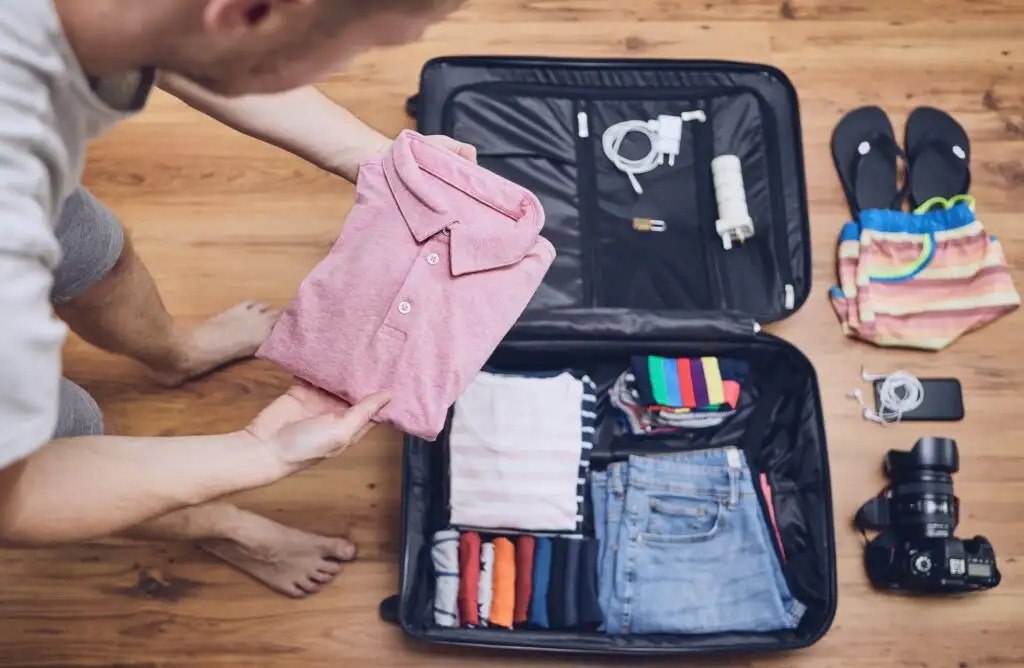
Speaking of complicated topics … where do we begin? Of course, the answer depends on where you’re going and for how long, but you’ll want to start with SmarterTravel’s Ultimate Packing List, which has you covered with the basics you’ll need for just about any type of trip. If you want more specific advice, consider these lists:
- The Essential Beach Packing List
- The Essential Carry-on Bag Packing List
- The Ultimate Holiday Packing List
- The Ultimate Cruise Packing List
- The Essential International Packing List
- How to Pack for an African Safari
- The Ultimate Ski Trip Packing List
You’ll also want to check out Ingenious Packing Tips Every Traveler Should Know, which includes information on how to pack for the TSA’s requirements, tips on saving space, a discussion of whether you should roll or fold your clothes, and clever tips from SmarterTravel readers. Trying to avoid overpacking? See A Traveler’s Guide to Minimalist Packing.
I’m Unhappy with My Seatmate(s) on the Plane. What Can I Do?
SmarterTravel readers often write in with travel questions about airplane seating dilemmas. “I have severe allergies to animals. What are my rights if I am sitting by someone with an animal?” asks one reader.
“I was recently seated next to a large person whose body overhung the armrest and crowded me,” writes another. “What can be done in this situation?”
Generally speaking, your best bet is to approach a flight attendant discreetly and ask if there are any available seats to which you could be moved. In the case of animal allergies, even if no seats are free, the airline staff might be able to find a non-allergic passenger who’s willing to switch with you. Bring up your concerns early—because once the plane has taken off, the flight attendants will have much less flexibility.
For more information, see the following resources:
- What You Need to Know About Flying with a Service or Emotional Support Animal
- Airline Passenger of Size Policies
What Are the Best Travel Destinations, and How Do I Know If They’re Safe?
There’s no single right answer to the first part of this question. It really depends on factors like your personal travel style and when you plan to travel. But there are a few tricks to identifying a great hot spot.
If affordability is a priority, look for destinations with new airline routes or hotels; providers will often release introductory rates at a discount, and you can be among the first to check things out. Additionally, keep an eye out for destinations making a comeback from natural disasters or political unrest; it can take time for tourists to return, even after the place is safe and open for business again, and the low demand can mean great deals for those who are willing to visit.
If you want to go where the excitement is, look for locales with big events, such as major sporting competitions, festivals, and museum openings. Check with the local tourism bureau to see what’s on; you might even stumble upon corresponding deals and packages.
SmarterTravel frequently publishes inspirational lists of places to travel for just about every interest. Check out Top Travel Destinations for 2020 or browse the site’s Destinations section to learn more.
As for safety, your first step is to research your destination on the U.S. State Department’s website. Here you’ll find important travel advisories and information about crime, health concerns, and other safety issues for every country around the world. Pay attention to the details before writing off an entire destination; it may be perfectly safe as long as you steer clear of certain problem areas. Keep an eye on news headlines in the lead-up to your trip so you’re aware of any last-minute issues.
If you have specific concerns, consider posting questions on travel forums such as TripAdvisor and Lonely Planet. Destination experts and locals can often offer up-to-the-minute updates from the ground.
More from SmarterTravel:
- Ultralight Travel: How to Pack Light Every Time
- 7 Mistakes to Avoid When Booking a Flight
- The Worst Seats on a Plane (and How to Avoid Them)
Editor’s note: This story was originally published in 2012. It has been updated to reflect the most current information. Anne Banas and Sarah Schlichter contributed to this story.
We hand-pick everything we recommend and select items through testing and reviews. Some products are sent to us free of charge with no incentive to offer a favorable review. We offer our unbiased opinions and do not accept compensation to review products. All items are in stock and prices are accurate at the time of publication. If you buy something through our links, we may earn a commission.
Related
Top Fares From
Today's Top Travel Deals
Brought to you by ShermansTravel
Greece: 9-Night Vacation, Incl. Meteora &...
Exoticca
 vacation
$2099+
vacation
$2099+
New Year Sale: Luxe, 9-Nt Alaska...
Oceania Cruises
 cruise
$3599+
cruise
$3599+
Ohio: Daily Car Rentals from Cincinnati
85OFF.com
 Car Rental
$19+
Car Rental
$19+
